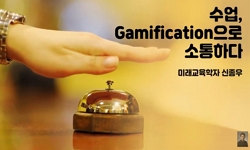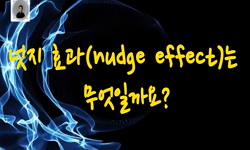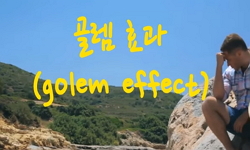최근 인간의 유희욕구를 자극하여 흥미를 유발시키고 몰입을 유도하는 게이미피케이션(Gamification) 기법이 대두됨에 따라 헬스케어(Health-care), 에너지 절약, 교육 등 다양한 분야에서 그 가치...
http://chineseinput.net/에서 pinyin(병음)방식으로 중국어를 변환할 수 있습니다.
변환된 중국어를 복사하여 사용하시면 됩니다.
- 中文 을 입력하시려면 zhongwen을 입력하시고 space를누르시면됩니다.
- 北京 을 입력하시려면 beijing을 입력하시고 space를 누르시면 됩니다.
https://www.riss.kr/link?id=A102396811
- 저자
- 발행기관
- 학술지명
- 권호사항
-
발행연도
2016
-
작성언어
Korean
- 주제어
-
등재정보
KCI등재
-
자료형태
학술저널
-
수록면
175-188(14쪽)
-
KCI 피인용횟수
5
- DOI식별코드
- 제공처
-
0
상세조회 -
0
다운로드
부가정보
국문 초록 (Abstract)
최근 인간의 유희욕구를 자극하여 흥미를 유발시키고 몰입을 유도하는 게이미피케이션(Gamification) 기법이 대두됨에 따라 헬스케어(Health-care), 에너지 절약, 교육 등 다양한 분야에서 그 가치와 중요성을 인식하고 있다. 그러나 현재 게이미피케이션 요소의 도출 및 전략에 관한 연구가 부족한 실정이므로 사용자의 행동유발 증진을 위한 전략적 연구의 수행이 필요하다. 따라서 본 연구는 운동 분야를 중점으로 여러 연구자들이 제시한 게이미피케이션 요소를 수집한 후 어피니티 다이어그램(Affinity Diagram) 방법을 사용하여 일곱 가지 전략 (보상, 도전, 성취, 경쟁, 관계, 접근, 자기표현)으로 분류하였고, 각 전략의 효과들을 정리하여 제시함으로써 게이미피케이션 전략의 무분별한 제공을 경계해야 한다는 목적을 담고 있다. 연구결과 보상전략은 운동수행향상과 내적동기에 긍정적인 영향을 미치며, 도전전략은 자기효능감과 신체기능을 향상시키고, 성취전략은 운동속도와 거리의 증가 및 만족감 개선에 도움을 준다. 경쟁전략은 목표성취율을 높여주고, 관계전략은 운동 습관을 형성시키며, 접근전략은 흥미를 유발하여 행동증진에 효과적인 것으로 나타났다. 마지막으로 자기표현전략은 행동변화에 긍정적인 영향을 미치는 것으로 나타났다. 본 연구에서 제시하는 전략들을 건강 행동증진과 관련된 분야에 적용하여 사용자의 능동적 참여와 몰입을 유도하는 긍정적 결과를 이끌어 내기를 기대한다. 차후 연구에서는 개인의 성향에 따른 게이미피케이션 전략의 행동의도, 행동몰입, 선호도에 관하여 양적으로 연구할 예정이다.
다국어 초록 (Multilingual Abstract)
Along with the recent appearance of the method, gamification, which raises interest and causes immersion by stimulating the human desire for amusement, its value and importance are recognized in various fields such as healthcare, saving energy, and ed...
Along with the recent appearance of the method, gamification, which raises interest and causes immersion by stimulating the human desire for amusement, its value and importance are recognized in various fields such as healthcare, saving energy, and education. As for now, however, there are not enough studies on deducing the factors of gamification and strategies, there need to be strategic studies on how to trigger users’ actions. So this study collected factors of gamification that several researchers suggested focusing on exercise, classified them into seven strategies(e.g., reward, challenge, achievement, competition, relationship, approach, and self-expression) using affinity diagram, and this paper aims to organize and present effects of each strategy and imply that we should be wary of indiscriminate supply of gamification strategy. The result of this studyr shows that reward strategy has a positive effect on improving exercise performance and inner motive, challenge strategy improves self-efficacy and physical functions, and achievement strategy helps improving exercise speed, distance, and satisfaction. Competition strategy increases the rate of achieving goals, relationship strategy forms exercise habit, and approach strategy raises interest and is effective in improving behavior. Lastly, self-expressing strategy was found to have a positive effect in changing behavior. It is expected that the strategies that this study suggests are applied to the areas related to improving health behavior and derive positive results that induce users’ active participation and immersion. In the following study, behavior intention, behavior immersion, preference of gamification strategy according to individual tendency will be quantitatively studied.
목차 (Table of Contents)
- Abstract
- 국문초록
- I. 서론
- II. 게이미피케이션과 헬스케어
- III. 연구방법
- Abstract
- 국문초록
- I. 서론
- II. 게이미피케이션과 헬스케어
- III. 연구방법
- IV. 게이미피케이션 운동증진 전략 및 효과
- V. 결론 및 제언
- Reference
참고문헌 (Reference)
1 신중엽, "지속적인 운동습관을 형성하기 위한 헬스케어 애플리케이션의 사용자 경험(UX) 전략 - 20~30대 여성을 중심으로 -" 한국디자인트렌드학회 (50) : 101-112, 2016
2 박미정, "반복적 단일 운동 치료와 과제 지향적 운동 치료가 뇌졸중 환자의 상지 기능에 미치는 효과 비교" 대한작업치료학회 19 (19): 1-14, 2011
3 정서원, "마라톤 동호인의 운동수준 및 보상이치는 영향" 한국스포츠심리학회 18 (18): 59-73, 2007
4 허정만, "로그 분석 기반 사용자 맞춤형 동적 레벨 디자인" (사)한국컴퓨터게임학회 27 (27): 211-219, 2014
5 박조원, "대학생의 온라인 게임 이용 동기가 체험 만족에 미치는 영향" 한국언론학회 54 (54): 131-154, 2010
6 권보연, "국내 게이미피케이션 연구의 메타 분석: 동향과 제안" 인문콘텐츠학회 (39) : 97-124, 2015
7 정의준, "게이미피케이션에 기반한 게임 3.0 시대의변화 양상에 관한 연구- 게이미피케이션의 개념과 메커니즘을 중심으로" (사)한국컴퓨터게임학회 26 (26): 87-97, 2013
8 김현준, "건강교육과 자발적 운동참여 프로그램이 비만 및 과체중아동의 신체조성과 자기효능감에 미치는 영향" 대한비만학회 16 (16): 130-137, 2007
9 "http://ericzimmerman.com/files/texts/Manifesto_for_a_Ludic_Century.pdf"
10 Giannakis, Konstantinos, "User requirements for gamifying sports software" 2013
1 신중엽, "지속적인 운동습관을 형성하기 위한 헬스케어 애플리케이션의 사용자 경험(UX) 전략 - 20~30대 여성을 중심으로 -" 한국디자인트렌드학회 (50) : 101-112, 2016
2 박미정, "반복적 단일 운동 치료와 과제 지향적 운동 치료가 뇌졸중 환자의 상지 기능에 미치는 효과 비교" 대한작업치료학회 19 (19): 1-14, 2011
3 정서원, "마라톤 동호인의 운동수준 및 보상이치는 영향" 한국스포츠심리학회 18 (18): 59-73, 2007
4 허정만, "로그 분석 기반 사용자 맞춤형 동적 레벨 디자인" (사)한국컴퓨터게임학회 27 (27): 211-219, 2014
5 박조원, "대학생의 온라인 게임 이용 동기가 체험 만족에 미치는 영향" 한국언론학회 54 (54): 131-154, 2010
6 권보연, "국내 게이미피케이션 연구의 메타 분석: 동향과 제안" 인문콘텐츠학회 (39) : 97-124, 2015
7 정의준, "게이미피케이션에 기반한 게임 3.0 시대의변화 양상에 관한 연구- 게이미피케이션의 개념과 메커니즘을 중심으로" (사)한국컴퓨터게임학회 26 (26): 87-97, 2013
8 김현준, "건강교육과 자발적 운동참여 프로그램이 비만 및 과체중아동의 신체조성과 자기효능감에 미치는 영향" 대한비만학회 16 (16): 130-137, 2007
9 "http://ericzimmerman.com/files/texts/Manifesto_for_a_Ludic_Century.pdf"
10 Giannakis, Konstantinos, "User requirements for gamifying sports software" 2013
11 Li, Wei, "Tovi Grossman, and George Fitzmaurice, "GamiCAD: a gamified tutorial system for first time autocad users" 2012
12 LeBlanc, Marc, "Tools for creating dramatic game dynamics" MIT Press 2006
13 AlMarshedi, Alaa, "The Wheel of Sukr: A Framework for Gamifying Diabetes Self-Management in Saudi Arabia" 63 : 2015
14 Yang, Eun Seok, "The Effects of Goal - Setting and Reward Structures on Moter Performance" 35 (35): 1996
15 Wong, Clara, "THE EFFECT OF GAMIFIED MHEALTH APP ON EXERCISE MOTIVATION AND PHYSICAL ACTIVITY" pacis 2016
16 Seo, Ea Sle, "Study on smart mobile healthcare UX design for persistent motivation" The Gradu ate School of Seoul University 2015
17 Yue, G., "Strength increases from the motor program: comparison of training with maximal voluntary and imagined muscle contra ctions" 67 (67): 1992
18 Walsh, Greg, "StepCity: a preliminary investigation of a personal informa tics-based social game on behavior change" 2014
19 Kim, Ye Ji., "Reconcile Heal thcare and Gamification to Reinforce Continuous Use of Application" 2015 (2015): 2015
20 Codish, David, "Personality based gamification: How different personalities perceive gamification" 12 (12): 2014
21 Behm-Morawitz, Elizabeth, "Mirrored selves: The influence of self-presence in a virtual world on health, appearance, and well-being" 29 (29): 2013
22 LeBlanc, Marc, "Mechanics, Dynamics, Aesthetics:A Formal Approach to Game Design"
23 Hunicke, Robin, "MDA: A formal approach to game design and game research" 4 : 2004
24 Lister, Cameron, "Just a fad? Gamification in health and fitness apps" 2 (2): 2014
25 Cugelman, Brian, "Gamification: what it is and why it matters to digital health behavior change developers" 1 (1): 2013
26 Deterding, Sebastian, "Gamification. using game-design elements in non-gaming contexts" 2011
27 Landers, Richard N., "Gamification of task perfor mance with leaderboards: A goal setting experi ment" 30 : 2015
28 Jung, Dong Nyeok, "Gamification elements for intrinsic motivation approach in psychology" The Graduate School Sungkyunkwan University 2015
29 Zichermann Gabe, "Gamification by design" Hanbit Media 2012
30 Krebs, David E., "Functional vs. strength training in disabled elderly outpatients" 86 (86): 2007
31 Stuart, Alan Graham, "Exercise as therapy in congenital heart disease—A gamification approach" 38 (38): 2014
32 Hyun, Jong Kun, "Effect to motor performance by effect of rewards" 4 : 2000
33 Hamari, Juho, "Does gamification work?--a literature review of empirical studies on gamification" 2014
34 Rao, Valentina, "Designing gamification for behavior change in mental health:challenges and perspectives" 2013
35 Consolvo, S., "Design requirements for technologies that encourage physical activity" 6 : 2006
36 Koivisto, Jonna, "Demographic differences in perceived benefits from gamification" 35 : 2014
37 Zuckerman, Oren, "Deconstructing gamification: evaluating the effect iveness of continuous measurement, virtual rewar ds, and social comparison for promoting phy sical activity" 18 (18): 2014
38 Kwon, Boh Youn, "A study on the gamification of SNS" The Graduate School of Ewha Womans University 2015
39 Miller, Aaron S., "A game plan: Gamification design principles in mHealth applications for chronic disease management" 22 (22): 2016
40 Kim, Yoo Jin, "A design of intervention algorit hms for blood pressure self-management appces sory by stages of health behavior change" The Graduate School Gachon University 2014
41 Yi, Su Jeong, "A Study on the Strategy of Brand Experience By Gamification" The Graduate School of Hongik University 2013
42 Jang, Jeong Woon, "A Study on the Game System of Reality Shows-Focusing on the CBS
43 An, Eun Yeong, "A Study on U-Healthcare Design Environmental Proposal for the Elderly Women -Focusing on Telemedicine-" The Graduate School of Sookmyung Women's University 2011
44 Moon, Ha Na, "A Study on Gamification Market ing based on Social Network Service" The Gradua te School of Ewha Womans University 2016
45 Lee, Seuk Woo, "A Mobile Game Design Study Using Gamification and Symbolization Strategies to Promote Daily Physical Activity" 2016 (2016): 170-177, 2016
동일학술지(권/호) 다른 논문
-
신체적 여가활동 참여자들의 대인관계 유능감 척도 재구성
- 한국전시산업융합연구원
- 김영철 ( Kim Young Cheoul )
- 2016
- KCI등재
-
- 한국전시산업융합연구원
- 오규운 ( K. W. Oh )
- 2016
- KCI등재
-
예술작품 기반의 VR 애플리케이션에 대한 사용자 경험 연구: 미술관 VR 애플리케이션에 대한 전망
- 한국전시산업융합연구원
- 이보아 ( Rhee Bo A )
- 2016
- KCI등재
-
CdS 광감응전자목회로(光感應電磁目回路)를 사용(使用)한 분광문자인식(分光文字認識)
- 한국전시산업융합연구원
- 이경 ( Lee Kyung )
- 2016
- KCI등재
분석정보
인용정보 인용지수 설명보기
학술지 이력
| 연월일 | 이력구분 | 이력상세 | 등재구분 |
|---|---|---|---|
| 2022 | 평가예정 | 재인증평가 신청대상 (재인증) | |
| 2019-04-12 | 학술지명변경 | 외국어명 : Korean Society of Art & Design -> The Korean Society of Science & Art |  |
| 2019-01-10 | 학술지명변경 | 한글명 : 한국과학예술포럼 -> 한국과학예술융합학회외국어명 : Korea Science & Art Forum -> Korean Society of Art & Design |  |
| 2019-01-01 | 평가 | 등재학술지 유지 (계속평가) |  |
| 2016-01-01 | 평가 | 등재학술지 유지 (계속평가) |  |
| 2014-01-09 | 학술지명변경 | 외국어명 : 미등록 -> Korea Science & Art Forum |  |
| 2012-01-01 | 평가 | 등재학술지 선정 (등재후보2차) |  |
| 2011-01-01 | 평가 | 등재후보 1차 PASS () |  |
| 2009-01-01 | 평가 | 등재후보학술지 선정 () |  |
학술지 인용정보
| 기준연도 | WOS-KCI 통합IF(2년) | KCIF(2년) | KCIF(3년) |
|---|---|---|---|
| 2016 | 0.5 | 0.5 | 0.49 |
| KCIF(4년) | KCIF(5년) | 중심성지수(3년) | 즉시성지수 |
| 0.5 | 0.49 | 0.707 | 0.12 |





 DBpia
DBpia






